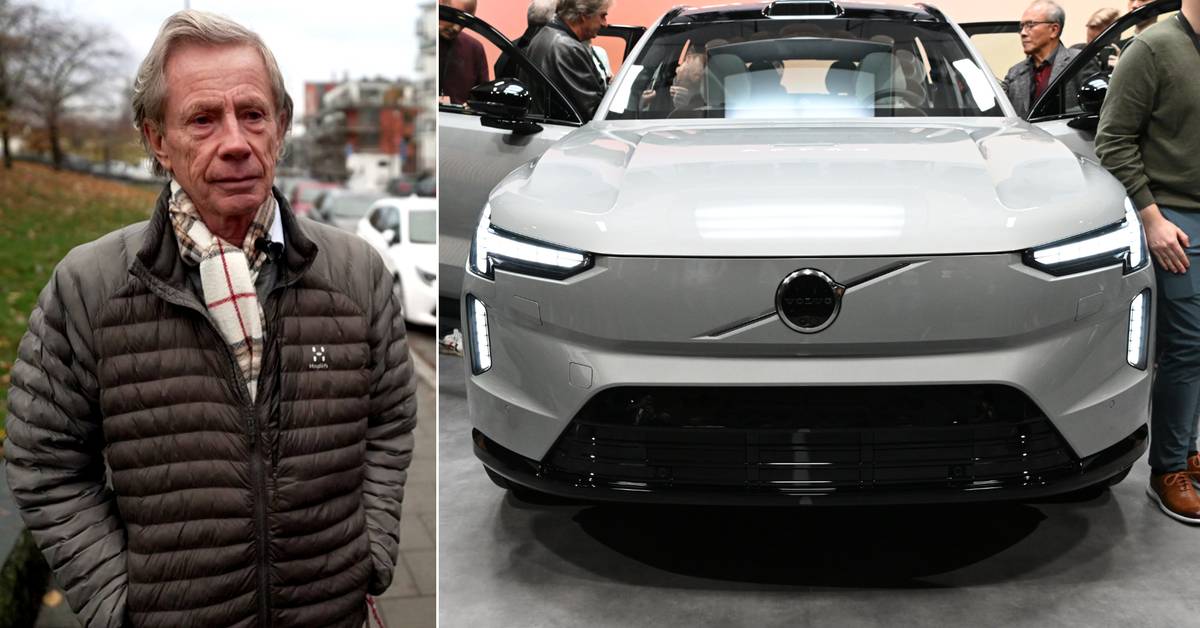Electric cars are getting heavier as manufacturers focus on large SUV models and long range that require large, heavy batteries.
Over two tons is common, but Volvo's new SUV EX90 is now at the top.
According to a review of the curb weight of electric cars by We Car Owners, the Volvo is heavier than both the Mercedes electric SUV EQS and AUDI's e-Tron.
The car manufacturers' investment in heavy premium cars is now condemned by several environmental scientists.
In a debate article in SvD, they urge car manufacturers to build smaller electric cars that not only consume less electricity but also less resources in the form of, among other things, rare battery metals.
The expert: Betting on the wrong qualities
Volvo's heavy new SUV is therefore not the best choice for the environment, says environmental researcher Per Kågeson.
- It is another car in the line of heavy, box-like cars with high air resistance and high rolling resistance, which leads to consuming much more electricity than you would need.
Are these really good for the environment?
- No, not with those qualities.
If you invested in reducing air resistance, rolling resistance and vehicle weight, and not peaks at high speeds and extremely fast acceleration, you could reduce electricity consumption by 30-40 percent, claims Per Kågesson, former professor of environmental systems analysis, KTH.
Want to see smaller electric cars
According to Volvo CEO Jim Rowan, the EX90 has a long range (60 miles) with a battery size of 111kWh, and a low drag for an SUV.
- For a large SUV, it is quite impressive, he says.
Volvo also points out that the battery metals are traceable, and that the batteries must be recycled in an environmentally friendly way.
Steel, aluminum and parts of the plastic are recycled materials.
Volvo's goal is to sell only electric cars by 2030, and plans to launch one new electric car a year for the next five years.
- This is the first purely electric car.
But next year we will launch a smaller electric SUV, says CEO Jim Rowan.

